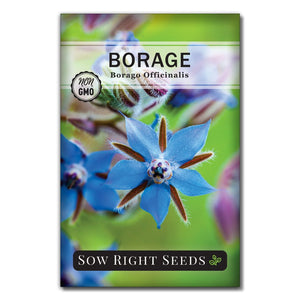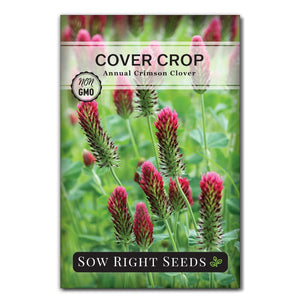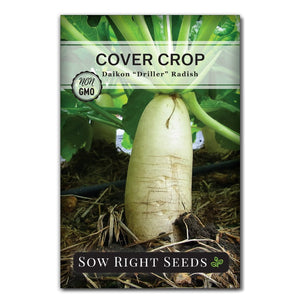How Smart Gardeners Pick Plants That Improve Soil Quality
Improving soilIs it possible to grow a thriving garden and improve your soil at the same time?
Not only is it possible, it's a proven strategy that seasoned gardeners use every season.
In this guide, we’ll explain how to pick the best plants for your soil type to create healthier soil one plant at a time.

Choosing Plants to Improve Soil Quality
You may find that you don’t have the time or tools to amend the soil for all of the plants you would like to grow. That’s okay because there are other options that still include a garden.
Certain plants don’t just survive in challenging soil—they thrive, adapting to poor conditions while enhancing the soil for future growth. From cover crops that act as nature’s green manure to nutrient-fixing plants that enrich the soil, there are countless ways to let your garden work for you.

Plants for Your Soil Type
Every garden has its own unique soil type or texture, whether it’s sandy, clay-heavy, silty, or a well-balanced loam. Each type of soil has specific characteristics that influence how plants grow—sandy soils drain quickly but struggle to retain nutrients, while clay soils hold moisture but can become compacted and suffocate roots. The good news is that with the diversity of plants available, there are species that naturally thrive in each type of soil.
By understanding your soil’s unique properties and matching it with the right plants, you can create a thriving garden while improving the quality and structure of your soil over time.
Plants for Sandy Soil
Sandy soil has the benefit of being easy for root vegetables to push through. Carrots, radishes, and garlic like to grow in more sandy soils.
Mediterranean herbs such as rosemary and thyme are also great choices for growing in sandy soil.
You could also plant blanket flowers, zinnia, or a buddleia bush in this type of soil for some added color!
Plants for Clay Soil
For clay soil, you will want to choose plants with shallow roots that don’t mind being a little bit wet since clay soils don’t drain well.
You could grow lettuce, broccoli, and beans for some yummy veggies.
There are plenty of flowers that thrive in clay soil, such as coreopsis, echinacea, aster, and daylilies.

If you've ever heard that your soil is too acidic to grow cabbage, then you have discovered that soil pH can affect the success of many plants. The pH of soil refers to how acidic or alkaline it is. Most nutrients are soluble at a pH of 6.2 to 6.8, which means the soil nutrients are more available to plants in this range.
If your soil falls outside of this range, you can grow specific plants that thrive in these conditions.
You can read more about soil pH and how it affects your garden.
Plants for Acidic Soil
Acidic soil can be perfect for some plants. Blueberries, raspberries, parsley, potatoes, azaleas, and hydrangeas can tolerate more acidic soil with a lower pH between 4.0 and 6.0.
Plants for Alkaline Soil
Arugula, cabbage, chives, cilantro, lettuce, lilacs, and buddleia bushes can be grown in soil with a moderately alkaline pH of up to 7.5.

Using Cover Crops to Improve Your Soil
Whenever your garden or beds aren’t in use, add some cover crops to protect your soil from erosion, suppress weeds, and foster a healthy soil microbiome. Cover crops improve soil over time and can be selected for specific needs.
Legumes like clover or winter peas can fix nitrogen for depleted soils. These are excellent for planting in sandy soil or after a crop of tomatoes.
To improve clay soil, plant Daikon Driller radishes to help break up the soil for future plantings.
Getting some plants in your garden, no matter what your soil conditions, will truly help you over time. Leaving the plant residues in your garden once the season has finished will add organic matter to your soil, improving structure as well as water and nutrient-holding capacity.
Having living roots will stimulate microorganisms and help cycle nutrients through your soil. The more types of plants you’re able to find to fit your garden, the more benefits your soil will see in the coming years!
Choosing the right plants for your soil type is more than just a smart gardening strategy—it’s a way to work in harmony with nature to improve your garden's health and productivity. By planting crops that improve soil quality, you not only set yourself up for a successful harvest but also enhance your soil over time.
From beautiful flowers and tasty herbs or cover crops that act as living mulch, these plants do more than grow—they actively build better soil for the seasons ahead.
Why wait to see the difference? Start planting with purpose today. Grow plants that improve soil quality and watch your soil and garden flourish together. With every seed you sow, you're investing in a healthier, more sustainable garden.
Written by Teresa Chandler









Leave a comment